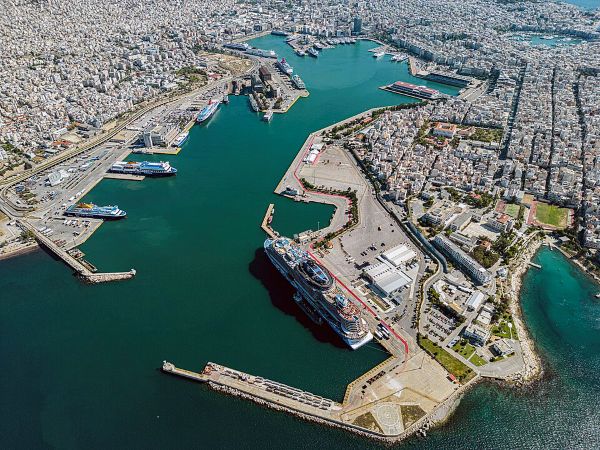European prosecutors have recently uncovered a significant criminal scheme involving the falsification of documentation for Chinese imports entering Europe via the Greek port of Piraeus. This has resulted in an estimated loss of approximately € 700 million in customs duties and VAT revenue to the authorities.
The investigation, led by the European Public Prosecutor’s Office (EPPO), encompasses 14 EU countries and has involved coordinated raids in Greece, Spain, France, and Bulgaria. As part of this effort, ten individuals, including two customs officers, have been arrested during over 100 searches executed at customs brokers’ offices and other locations.
Law enforcement agents have seized thousands of e-bikes and e-scooters, as well as 480 containers, which will undergo further inspection and verification in the Port of Piraeus. Additionally, freezing orders have been established to secure assets, including real estate, boats, and bank accounts. During the operation, approximately €5.8 million in various currencies was confiscated, including €4.75 million within Greece. Authorities also discovered several firearms at the residences of three suspects.
Furthermore, the EPPO reported the seizure of eleven properties in Spain, 27 vehicles, and various luxury items. The EPPO identifies the scheme as being orchestrated by multiple criminal networks predominantly controlled by Chinese nationals. These networks managed the importation, distribution, and sale of Chinese goods within the EU while also engaging in money laundering and repatriating illicit profits back to China. Upon arrival of the goods from China at the port of Piraeus, they are often deliberately undervalued or misclassified to evade customs obligations. These goods are subsequently cleared by customs brokers and sold to businesses in other EU states through a mechanism designed to circumvent VAT payments.
The investigation revealed that these criminal organisations generate false invoices and transportation documents to obscure the actual destination of the goods. They also establish networks of pseudo-companies that can offer these products at artificially competitive prices due to the non-payment of VAT and the substantial evasion of customs duties and anti-dumping fees.

